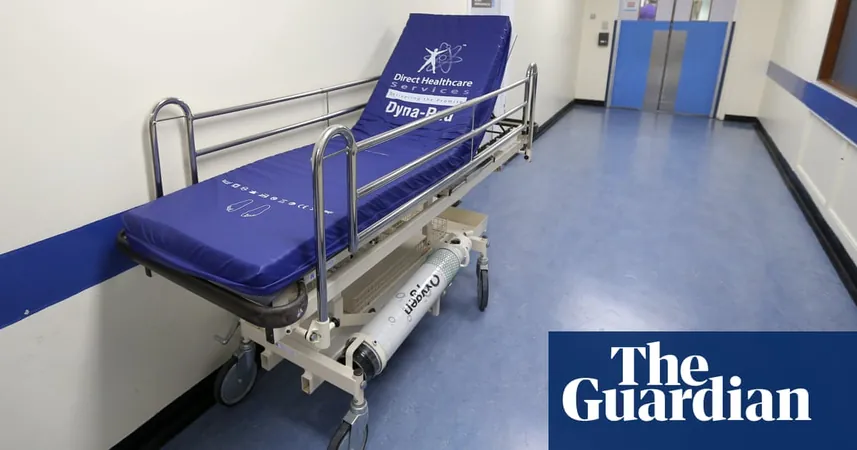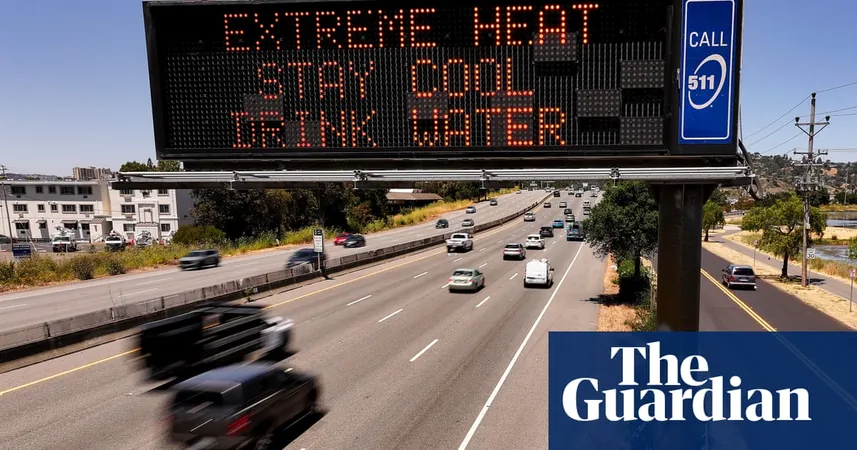
Shocking NHS Failures: Elderly Man Left Unable to Swallow After 52-Hour A&E Nightmare
2024-12-05
Author: Sarah
In a deeply alarming incident that underscores the crumbling state of NHS urgent care, an 85-year-old man was subjected to an unspeakable ordeal, ultimately losing his ability to swallow after an unbelievable 52-hour wait in Accident and Emergency (A&E). Tragically, he passed away four weeks later, raising serious questions about patient safety and medical neglect in hospitals.
The elderly man, suffering from Parkinson’s disease, was advised to visit A&E after complaining of back pain following a recent fall at home. What should have been a straightforward process spiraled into a nightmarish delay, with the majority of his time spent on a bed in a hospital corridor due to overwhelming demand for services.
While waiting for treatment, he required crucial medication to manage his Parkinson's symptoms. However, a shocking report from the Health Services Safety Investigations Body (HSSIB) revealed that out of the 18 doses he was supposed to receive, seven were not administered at all, and three were given late. This oversight not only worsened his condition but ultimately led to his inability to swallow upon admission to a ward after the prolonged wait.
He died just a month later, with the coroner attributing his death to a severe chest infection, complications from Parkinson's disease, and overall frailty. The report highlights a series of systemic failures within the emergency care system, calling into question the protocols in place for managing patients with urgent medication needs.
The HSSIB noted that there was a significant lack of organization and responsibility within the emergency department. Essential medication management was grossly inadequate, particularly regarding urgent needs for time-critical treatments. Furthermore, staff were unable to quickly verify necessary prescription information with the patient's GP or specialty teams due to time constraints and limitations on communication outside of regular hours.
Patients who are already vulnerable, like this elderly man, can face severe risks when essentials such as medication are not delivered on time. The report stresses the importance of recognizing and prioritizing medications during emergencies to prevent potentially preventable harm.
In a statement, Dr. Adrian Boyle, president of the Royal College of Emergency Medicine, condemned the event, labeling it "shocking" and "tragic." He emphasized that no patient should face the risk of deteriorating health due to inadequate access to necessary medications in emergency settings.
As performance data reveals alarming trends, with nearly 50,000 people waiting over 12 hours in A&E in October alone—one of the highest figures since 2010—this case serves as a critical wake-up call. Experts are urging health authorities to reassess and reform how they handle time-sensitive medications in emergency departments.
Deinniol Owens, deputy director of investigations at HSSIB, echoed similar sentiments, emphasizing that addressing medication needs is as vital as treating the emergencies that brought patients to the hospital in the first place.
This harrowing tale of negligence and its tragic outcome should compel immediate action from health providers to ensure similar mistakes are never repeated. Lives are on the line, and the time for change is now.



 Brasil (PT)
Brasil (PT)
 Canada (EN)
Canada (EN)
 Chile (ES)
Chile (ES)
 España (ES)
España (ES)
 France (FR)
France (FR)
 Hong Kong (EN)
Hong Kong (EN)
 Italia (IT)
Italia (IT)
 日本 (JA)
日本 (JA)
 Magyarország (HU)
Magyarország (HU)
 Norge (NO)
Norge (NO)
 Polska (PL)
Polska (PL)
 Schweiz (DE)
Schweiz (DE)
 Singapore (EN)
Singapore (EN)
 Sverige (SV)
Sverige (SV)
 Suomi (FI)
Suomi (FI)
 Türkiye (TR)
Türkiye (TR)